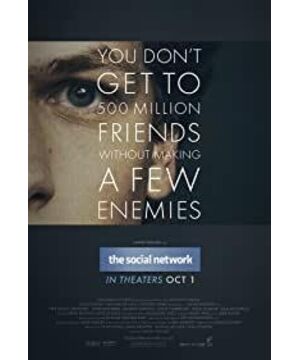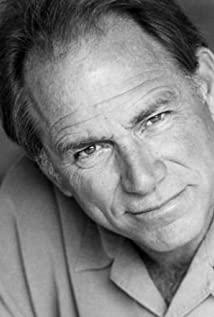Let me talk about two cases in the movie story.
The twins sued Mark for plagiarism, or idea-theft to be precise, because they felt they had come up with the idea of such a social network. But embarrassingly, idea is not very protected legally. Intellectual property rights only protect the expression of a concrete idea, not an abstract idea. To put it simply, intellectual property is a monopoly. If you own a copyright to something, others cannot use it casually; if abstract ideas are also protected, it is equivalent to controlling other people's thoughts, which is unrealistic. The problem with the twins is that they only have this idea, and as Mark said, he did not use their code (program code is within the scope of intellectual property protection), so intellectual property does not protect them.
If the legal provisions cannot be directly applied, the idea can only be protected by a contract. There are many situations in the Hollywood film and television industry. For example, passer-by thinks that he has a particularly good idea to make a TV series or a movie. He went to the producer to talk about the idea, and they ignored him, but one came out two years later. When he saw the movie, wasn't this the one I was talking about? Then go to lawsuit. Because there is no real story outline or script, this can only be regarded as an idea, so I can only sue others for misappropriating his ideas. But the problem is that Hollywood producers and creators see countless people all day long and tell them this and that. Can they remember who said what? Did they use other people's ideas without paying, or was it a coincidence of independent creation?
If there is no written contract, for example, the twins and Mark have not signed a contract. There is an implied contract. It requires: 1. One provides an idea, and the other is interested in using the idea (for example, if you hear/read the idea and feel good, then buy it-there must be such an intention). Both parties clearly recognize this. (Not one person wants to sell and the other doesn't want to buy at all); 2. One person does use other people's idea-it contains two elements, one is substantial similarity, the two must be very similar, and the other is access, which is It is a coincidence that someone who made something very similar to your idea must have come into contact with your idea.
In the movie, Mark obviously came into contact with other people's ideas, but how similar the idea of the twins is to Facebook is one of the focuses of their debate in the composition. Mark believes that the twins' idea is just a Harvard alumni website, which is very internal, and the social role of facebook goes far beyond this idea. In addition, whether the two parties reached a consensus on using this idea to build a website is also a point of dispute. At first, the lawyers for the twins struggled with how Mark responded to the twins and what words he said for this. If Mark makes it clear that he wants to build this website in accordance with the twins' ideas, it is equivalent to an oral agreement between them. After receiving the lawyer’s letter from the twins, Mark consulted with a 3L and wrote to the twins with the opposite opinion. In fact, your idea is not good. In special circumstances, Mark did not buy the idea, but developed the idea for them, trying to distinguish the relationship.
When we were in the contract negotiation class, the professor said that the biggest mistake of the twins was that they didn't ask Mark to sign a written agreement-developing a website, plus confidentiality and non-competition clauses, especially their father has a lawyer, which is nothing at all. If they have a lot of thoughts, maybe there will be no such thing as Facebook in the world.
From a purely legal point of view, the twins have to win the lawsuit, but as the last junior associate said, the jury will be very subjective, so reconciliation is the best way.
Then there is Eduardo's question. I am not very familiar with the financial laws of the United States, and I can't explain how the dilution of shares is done. But they dared to do this in a fair manner. It must be in compliance with the laws and regulations, not to mention that Wardo himself signed the agreement. But he can still sue and try, because part of the American law is to pursue equity, that is, to pursue a certain degree of fairness and justice. There was no loss in the shares of other shareholders, and Wardo alone was affected so much, it was obviously unreasonable and unfair. And, fortunately, I still remember the company law from last semester. Aside from the identity of the CFO, Wardo is a shareholder of the company, and the actual managers of the company have fiduciary duties to him. They should be in his best interests, not cheating him. One stroke. The film describes how Wardo paid Mark and supported him for a long time without complaint, just to prove that Wardo's later experience was obviously unfair, and certain equity should be considered in addition to the black and white legal provisions.
However, I wrote and remembered that there is a very scary thing in the company law called BJR, the business judgement rule, which basically means that the company’s business decisions made by the company’s management (such as the board of directors), even if it is ultimately damaged For the interests of shareholders, shareholders cannot easily file a lawsuit. This is mainly to encourage those who run the company to take more risks, do more transactions, and promote economic development, without worrying about making a compensation in case of a wrong decision being sued by shareholders. Bankruptcy. If shareholders sue the board of directors, and the board takes out the shield of BJR, shareholders must provide evidence to overturn it. For example, the person who made the decision obviously harmed the company's interests, or deceived, or the major decision was not properly notified to shareholders.
All in all, I think Wardo has a bigger win than the twins case, especially if he wants to win, he really only needs sympathy. Mark has nothing to argue with. So in the end they must have a lot of settled money.
There is also a legal issue outside the play.
This movie is about real events of real characters, and there are many fictitious components, which can easily cause dissatisfaction with the prototype characters. In Hollywood, it is often necessary to get a real life story right to make a real-life event movie, get my consent, use other people’s life experience, and make adaptations-in fact, there are mainly two things that I spend money to buy, one is from myself The first-hand information obtained here is another one that allows you to tamper with the consent of other people's life experiences.
We discussed this issue in the film contract class. Everyone felt that Aaron Sorkin was unlikely to call Mark Zuckberg and said that I want to write you this way. Mark would definitely not agree. Moreover, after the movie was released, Mark really did it for Save your image running around.
But why can TSN write like this without my consent? Why doesn't Mark sue them?
First, Mark Zuckberg is a public figure. Generally, the more celebrity you are, the less protection your real life story will receive. Because you are a celebrity, many of your life experiences belong to public events and are materials that everyone can use at will in the public domain. , It's like you want to film the founding ceremony, you don't need to ask the Mao family for permission.
Second, this reason is my speculation. Aaron Sorkin stated that the script of the movie was adapted from the book. I don’t know if the book was approved by Mark (I guess neither), but after such a procedure, the background of "real people and real things" is compromised, especially It is the book itself that has made a lot of changes to the real events, which basically constitutes a new work. The movie script can try to gradually break away from the relationship with the real life story. However, he really used someone's name, and he couldn't escape it. However, referring to the first reason, the protection of the name rights of public figures is not as strict as that of passersby. Facebook’s trademark rights are basically the same.
Third, if Mark wants to sue Columbia, the specific loss is difficult to quantify. He is so rich himself, how much can this movie hit him financially? Don’t you still use facebook? (It's not because the movie is not available.) As for the mental loss, really, no jury or judge will sympathize with a 26-year-old man with a net worth of $6 billion. The ghost only cares whether your young soul is hurt.
The fourth and most important reason, is he short of this money? He can fully pay his own money to make 10 "Avatar"-level movies to praise himself. If he is really so boring.
The downside of being as rich as he is young is that it can only be a price drop if you compare it to anyone. So he can only go to Oprah, donate money (if he is shameless, try to get Columbia to reimburse the money), and go to SNL to meet with the accomplices who vilify him.
There are many other legal issues related to movies, and I really can't analyze them all. These are just the ones I have discussed more with people recently, and I am too lazy to write papers. The insiders welcome the discussion, and the outsiders just watch it lively.
View more about The Social Network reviews











